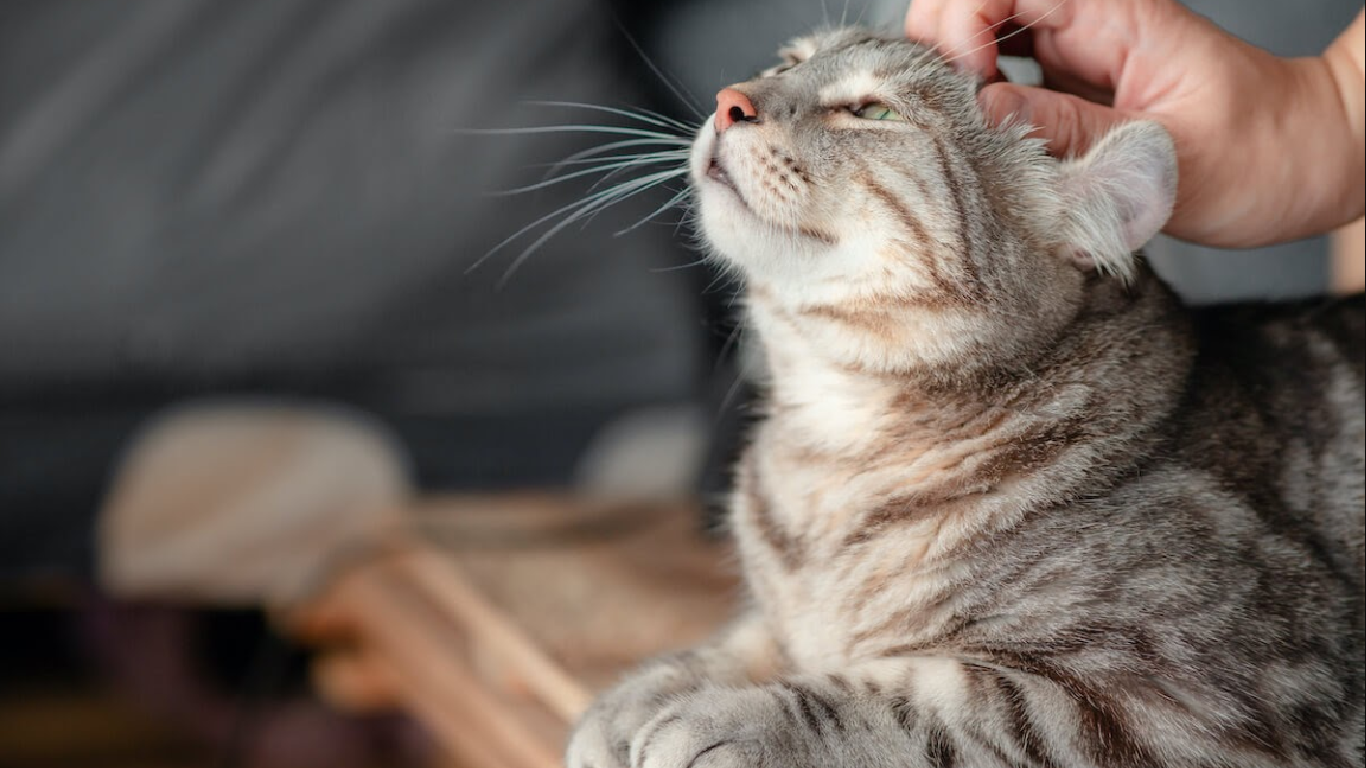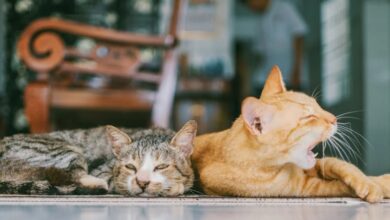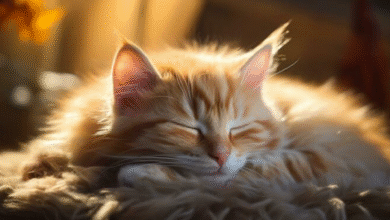5 Signs of a Weak Immune System in Cats That Need a Vet Check
Like other living beings, cats are naturally robust creatures. Unfortunately, they may face health challenges at some point in their lives. Weakening of the immune system makes your feline friend more susceptible to medical complications and infections. That’s why immune support for cats is essential to reduce such risks. In recent years, many owners are becoming more aware of the risks associated with a weak immune system in catscats, especially as infections become more common.

Infection are among the most common concerns the cat parents and pet owners have these days. But understanding the warning signs, using an immune support for cats can help protect your cat’s health on time. A compromised immune system is not always easy to spot, but the earlier the signs are detected, the more effective the treatment can be. Recognizing the symptoms of a weak immune system in cats is key to timely intervention.
1. Persistent Infections
With time, cat infections like respiratory issues, urinary tract infections, or skin infections tend to become more common. With the proper precautions, fast fitness, and a roundabout approach, the infections can easily be kept at bay. However, if your cat still contracts the infections, it could mean that wrong or inadequate protective measures are in place – making immune support for cats even more important. These recurring issues are often signs of a weak immune system in cats.
2. Appetite Reduction and Weight Decrease
In most contexts, swift weight loss is troublesome. In the relationship context, loss of appetite coupled with weight means that there is some hidden issue which is not openly visible. In case the immune system is dysfunctional, cats lose weight together alongside the imbalances like unregulation of systems. Diminished appetite in rare cases can also present the underlying nutritional issues which need to be catered matter readily, usually improved with immune support for cats.
3. Strange Fatigue and Low Energy
Cats might love their naps, but very sleepy or inactive cats might be experiencing something more than normal sleepiness. A cat that is unusually lethargic and does not join in play or seems disinterested in its environment could be a sign of low immunity and may need immune support for cats. If this behavior becomes persistent, it could point to a weak immune system in cats that requires immediate attention.
4. Dull or Poor Coat Condition
Cats have smooth gleaming fur, but the coat of a cat that has an improperly functioning immune system will be dull and patchy. You may observe lackluster rolling, excess shedding or even patchy fur. Essentially, the alteration represents a problem that needs to be solved by giving the cat better care and immune support. Poor coat health is one of the visible signs of a weak immune system in cats.
5. Gum Inflammation and Oral Issues
Immune-related conditions can be associated with diseases affecting the teeth and gums. In a cat with defended gum, mouth sores, halitosis and reluctance to consume palatable dry food, inflammatory infections due to weakened defense mechanisms may be present. These oral symptoms often accompany a weak immune system in cats and should not be ignored.
When Should You Visit a Vet
As soon as you note any of the signs above, consult your veterinarian and consider including immune support for cats in the care routine. The sooner these signs are addressed, the higher your chances are of averting potential health complications in the future. Most of the time, treating health complications with early detection tends to be much simpler, and greatly improves the quality of life of your pet.
Your Cat’s Immune Health: What You Can Do
It doesn’t take a great deal to help support a cat’s immune system, just some consistency. Making immune support for cats part of the day will make all the difference. Consistency in care plays a critical role in preventing the effects of a weak immune system in cats, especially as they age or face new environmental stressors.
- Call To The Vet: Do not miss out on booked check-ups. Regular screenings help tackle potential problems long before they have the chance to fest.
- Food: Provide your cat with a balanced diet that is appropriate for its age, breed, and medical history. A proper diet directly helps reduce the risks of a weak immune system in cats.
- Avoid Stress: Cats are best kept in calm and stable surroundings. Stress is one of the main causes for a weakened immune system.
- Vaccinations: These protect your cat from a variety of preventable diseases and goes a long way in supporting their general immunity.
Final Thoughts
Although your cat cannot verbally communicate what’s bothering them, their body language and daily habits can tell you a lot. Noticing an increase or decrease in energy levels, appetite, appearance, and grooming can help identify signs associated with a weak immune system in cats. With the right approach and taking action, your feline friend can be healthy, active, and happy for many years to come.
Feline Immunodeficiency Virus (FIV)
Cat owners often confuse feline leukemia with feline immunodeficiency virus (or FIV, also known as feline AIDS). Like feline leukemia, FIV is caused by a virus. However, the similarities end there. The diseases differ in many ways including risk, transmission, and prognosis. FIV can contribute to a weak immune system in cats, especially in multi-cat households where aggressive behavior may occur.
What Is FIV?
Much like human immunodeficiency virus (HIV), FIV attacks a cat’s immune system, reducing their ability to fight off other infections. An infected cat may be at greater risk of developing other infections because their immune system isn’t as strong as that of a healthy cat. Thus, they are at greater risk of catching what are called “opportunistic” infections—those resulting from their depleted immune system being unable to fight infections that a healthy cat may be able to fight off. This is why many cases of FIV are linked to a weak immune system in cats.
Signs of FIV
Many of the signs of FIV look like those for feline leukemia including fever, lethargy, weight loss, swollen lymph nodes, and skin and respiratory infections. Other problems include dental or oral infections, diarrhea, eye diseases such as cloudiness in the cornea, vomiting, abscesses, poor coat or hair loss, ear mites, and ringworm, among others. Some cats show neurological problems or anemia. Viewed individually, some of these infections (like ear mites or ringworm) are normal problems affecting even healthy cats. However, a vigilant cat owner should take note when infections occur at greater frequency, duration, or in concert with other infections, as they may indicate a weak immune system in cats.
Why Early Detection Matters
Catching the signs of a weak immune system in cats early can make a significant difference in their recovery and long-term wellness. Since many immune-related symptoms mimic those of other common feline conditions, pet owners often overlook them until the issue becomes more serious. Regular health monitoring, combined with subtle observations of behavior and appetite, is essential for ensuring your cat receives the care they need before complications arise. Early intervention is one of the most effective strategies to reduce the impact of a weak immune system in cats.
Building Daily Immune Support Routines
Maintaining a healthy lifestyle for your cat doesn’t require complicated treatments. Simple routines—like offering clean water, serving high-quality food, minimizing stress, and incorporating gentle daily exercise—can greatly strengthen immune defenses. Cats with consistent, balanced lifestyles are more resilient to health threats. Creating a proactive care plan not only improves overall health but also helps manage the risks associated with a weak immune system in cats as they age.
📌 Summary: Weak Immune System in Cats
- 🔬 Key Issue: A weak immune system in cats increases vulnerability to infections, diseases, and overall health complications.
- 🚨 Warning Signs: Persistent infections, appetite loss, low energy, dull coat, and gum issues.
- 📋 Causes: Congenital immunodeficiency or infection with viruses like FIV, FeLV, or parvovirus.
- 🔎 Diagnosis: Includes physical exam, blood tests (CBC), urinalysis, and biochemistry profiling.
- 💊 Treatment: No known cure, but supportive care like antibiotics, antifungals, and immune-boosting routines can help.
- 🛡️ Prevention: Vaccinations, indoor living, low stress, and healthy diet to strengthen immunity.
- 📅 Vet Visits: Regular check-ups and early detection improve quality of life and longevity.
✅ Staying proactive and observant is key to protecting your cat’s health from the effects of a weak immune system.




